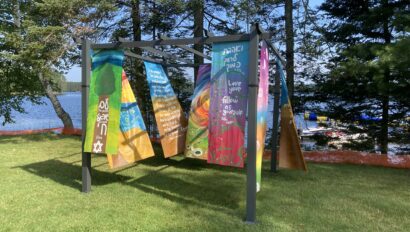Please enjoy a D’var Torah this week from Rabbi Josh Feigelson. Josh, who received his Rabbinic ordination at Yeshivat Chovevei Torah, serves as the Educational Director for Ask Big Questions, a national initiative of Hillel to promote civil dialogue on college campuses throughout North America. He will be joining us for his third summer on staff, where he will serve as one of our Senior Educators supporting staff in program planning and professional development. Josh is a doctoral student in Religious Studies at Northwestern University, where he served for six years as the Campus Rabbi of the Northwestern Hillel. Josh lives in Evanston with his wife, Natalie Blitt, and three sons – Toby, Micah, and Jonah, who will be a camper in Garinim 2013!
Bamidbar/Shavuot: Acquiring by Letting Go
by Rabbi Josh Feigelson
The Book of Numbers tells the story of the transition of the Israelites from freed slaves into a people capable of conquering and settling the land of Israel. The midrash (Bamidbar Rabbah 1:7) asks what is taught by the Hebrew name of Numbers, Bamidbar, from the opening words of the book: “And God spoke to Moses in the wilderness of Sinai.”
Why the wilderness (midbar)? From here the Sages taught that the Torah was given in three ways: fire, water, and wilderness. Fire: ‘And Mount Sinai was full of smoke’ (Ex. 19:18); water: ‘the earth trembled, and the heavens dropped, the clouds also dropped water’ (Judges 5:4); wilderness: ‘And God spoke to Moses in the wilderness of Sinai.’ And why was it given in these three ways? Just as these three are free and available to all, so too are the words of Torah, as it is said, ‘Every one who thirsts, come to the waters’ (Is. 55:1). Another teaching: ‘And God spoke to Moses in the wilderness of Sinai.’ One who fails to make himself ownerless like the wilderness is unable to purchase wisdom and Torah.





